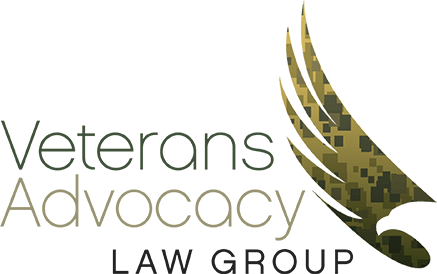Understanding Employment Transition Challenges for Veterans
Transitioning to Civilian Workforce
For many veterans, the shift from a military to a civilian workforce is akin to navigating uncharted waters. The structure and camaraderie they've grown accustomed to can seem worlds apart from the corporate landscape. In the military, the chain of command and the mission are clear, whereas civilian workplaces often operate on a more nuanced social structure, with a focus on individualism and corporate politics. This cultural shift can be disorienting for veterans, who must adapt to a less regimented environment where their role may not be as clearly defined. Understanding these differences is crucial for both veterans and their potential employers to ensure a smooth transition.
Skills Translation and Recognition
One of the most significant hurdles veterans face is articulating how their military experience translates to the civilian job market. The skills honed in service—leadership, discipline, and strategic thinking—are highly valuable, yet often go unrecognized due to a lack of understanding on how to effectively communicate them. Employers may overlook the depth of a veteran's experience simply because it doesn't align with traditional job descriptions or credentials. It's imperative that veterans learn to bridge this gap and that employers take the initiative to comprehend the transferability of military skills to support veteran integration into the workforce.
Mental Health and Workplace Integration
Post-Traumatic Stress Disorder (PTSD) and Employment
PTSD can be an invisible barrier to employment for many veterans, affecting their ability to secure and sustain a job. The symptoms of PTSD, such as anxiety, flashbacks, and difficulty concentrating, can impair job performance and strain professional relationships. Employers need to recognize that PTSD is not a sign of weakness but a mental health condition that requires understanding and support. By fostering an environment where veterans feel comfortable seeking help and accommodations, businesses can not only assist in their healing but also benefit from the full potential of their veteran employees.
Access to Mental Health Resources
Access to mental health resources is a critical component of successful workplace integration for veterans. Employers must be proactive in creating pathways to support, whether through in-house programs or partnerships with external mental health services. Educating management and HR on the signs of mental health struggles and the resources available is a step towards destigmatizing mental health issues. When veterans feel supported in managing their mental health, they are more likely to thrive in their roles and contribute positively to the workplace.
Navigating Employment Benefits and Rights
Understanding Veteran Employment Rights
Veterans are afforded certain legal protections that safeguard their employment rights, yet many are unaware of these entitlements. The Uniformed Services Employment and Reemployment Rights Act (USERRA) is one such legislation that ensures veterans are not disadvantaged in their civilian careers due to their service. It's crucial for veterans to be informed about their rights under USERRA, including job security and benefits protection. Equally important is for employers to understand their obligations under the law to prevent unintentional infringements on these rights.
Utilizing Veteran-Specific Employment Programs
There is a wealth of programs aimed at facilitating veteran employment, ranging from government initiatives to private sector efforts. These programs often provide job fairs, vocational training, and even hiring incentives for employers willing to invest in veteran talent. Veterans should be encouraged to take full advantage of these resources to enhance their employability. Employers can also benefit from these programs by gaining access to a pool of skilled and disciplined candidates ready to make a significant impact in their organizations.
Addressing Educational Gaps and Advancement
Pursuing Further Education and Training
The pursuit of further education and training presents both challenges and opportunities for veterans. Many veterans are eligible for GI Bill benefits, which can be a powerful tool in advancing their education and, by extension, their careers. However, navigating the complexities of these benefits and finding the right educational path can be daunting. Veterans must be equipped with the right information and support to make the most of these opportunities, ensuring they can translate their military experience into qualifications that resonate in the civilian job market.
Overcoming Barriers to Career Advancement
Veterans often encounter barriers to career advancement that stem from misconceptions about their service. Stereotypes can lead to a lack of understanding from employers about the value and applicability of military experience in the corporate world. It is essential to challenge these stereotypes and highlight the leadership, problem-solving, and teamwork skills that veterans bring to the table. By doing so, veterans can break through the glass ceiling of career advancement and reach their full potential in the civilian workforce.
Creating Veteran-Inclusive Work Environments
Promoting Veteran Hiring Initiatives
Companies that implement veteran hiring initiatives not only support those who have served but also enrich their own workforce with diverse perspectives and skills. These initiatives can take many forms, from targeted recruitment efforts to partnerships with veteran organizations. The benefits are twofold: veterans gain access to meaningful employment opportunities, and companies benefit from the discipline, resilience, and leadership skills that veterans are known for. It's a strategic move that can lead to a more robust, dynamic, and loyal workforce.
Fostering a Supportive Corporate Culture
Creating a corporate culture that values the unique experiences of veterans goes beyond hiring initiatives. It involves fostering an environment where veterans feel understood and appreciated. Strategies such as mentorship programs, veteran resource groups, and ongoing training can help bridge the gap between military and civilian work life. When veterans feel that their contributions are valued and their experiences are respected, it not only aids in their personal adjustment but also promotes a culture of inclusivity and respect within the organization.
Breakdown of Common Issues Veteran's Have Transitioning to Civilian Jobs:
Transitioning from military service to civilian employment can present various challenges for veterans. Some of these challenges include:
Skills Translation: Veterans often possess valuable skills gained during their service, but translating those skills into terms that civilian employers understand can be challenging.
Civilian Work Culture: Adjusting to the different work culture in civilian settings, which may be less hierarchical and structured than the military, can be a significant hurdle.
Lack of Civilian Credentials: Some military occupations may not have direct civilian equivalents, and veterans may face difficulty obtaining necessary certifications or credentials for civilian jobs.
Discrimination and Stereotypes: Veterans may encounter stereotypes or misconceptions about military service that can affect how they are perceived in the civilian job market.
Mental Health Stigma: Veterans may hesitate to disclose mental health conditions due to the stigma surrounding mental health issues in the workplace.
Reintegration Stress: The process of reintegrating into civilian life can be stressful, and veterans may face challenges in adapting to new routines and expectations.
Deployments Impact on Careers: Frequent deployments during military service can lead to resume gaps and potential challenges in career advancement.
Lack of Networking: Veterans may face difficulties in building professional networks in the civilian sector, which can be crucial for job opportunities and career growth.
Uncertainty about Career Paths: Veterans may struggle with identifying suitable civilian career paths and understanding how their military experience aligns with various industries.
Legal Protections: Veterans may not be aware of their rights and legal protections related to employment, including protections against discrimination based on military service.
Limited Job Search Resources: Some veterans may lack awareness of available resources for job searching, resume building, and career counseling tailored to their unique needs.
Disability Accommodations: Veterans with service-related disabilities may face challenges in obtaining reasonable accommodations in the workplace.
Addressing these issues requires a combination of targeted support, education, and outreach efforts from both the government and private sector organizations to facilitate a smoother transition for veterans into civilian employment. Employers can also play a crucial role by fostering inclusive workplaces and recognizing the unique strengths and experiences that veterans bring to the workforce.
An attorney experienced with these issues can also help.
Ways an Attorney Can Help Veterans Transitioning to Civilian Employment
In the face of unique challenges, legal support becomes crucial to ensure that veterans receive the rights and benefits they deserve. From understanding disability accommodations under the Americans with Disabilities Act (ADA) to negotiating with employers for reasonable adjustments, an experienced attorney plays a vital role.
Veterans Advocacy Law Group, recognizes the intricacies of this transition and is committed to providing comprehensive legal guidance. Our attorneys serve veterans nationwide from our offices in Fredericksburg, Virginia and Denver, Colorado. Our attorneys can help you with:
- Identifying Reasonable Accommodations: An attorney can work with veterans to identify reasonable accommodations that will allow them to perform their job duties effectively. This may include modifications to their work environment, schedule, or job tasks.
- Negotiating with Employers: If a veteran is facing resistance from an employer when requesting accommodations, an attorney can negotiate on their behalf to ensure that their rights are protected and they are given equal opportunities in the workplace.
- Handling Discrimination Claims: Unfortunately, some employers may discriminate against veterans with disabilities. In these cases, an attorney can help veterans file discrimination claims and seek justice for any mistreatment they may have faced.
- Appealing VA Benefits Decisions: Veterans with service-related disabilities are entitled to certain benefits from the Department of Veterans Affairs (VA). However, if their claim is denied or they receive a lower rating than expected, an attorney can help them appeal this decision and fight for the benefits they deserve.
- Providing Legal Representation: In situations where a veteran's rights have been violated in the workplace, an attorney can provide legal representation and advocate on their behalf in court.
At Veterans Advocacy Law Group, we understand the complexities of transitioning from military to civilian employment. Our teams in Virginia and Colorado are dedicated to supporting veterans in navigating the legal landscape of employment rights and benefits.
If you're a veteran facing employment challenges, we invite you to contact us. Let's work together to ensure our nation's heroes find the success they deserve in their post-service careers.

